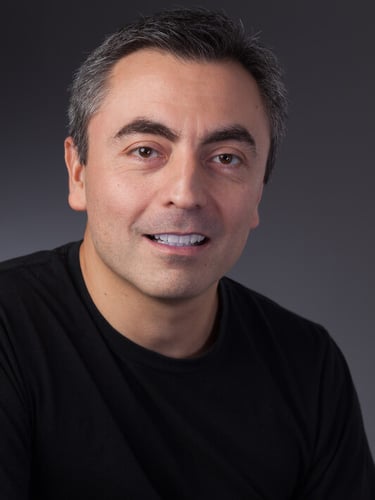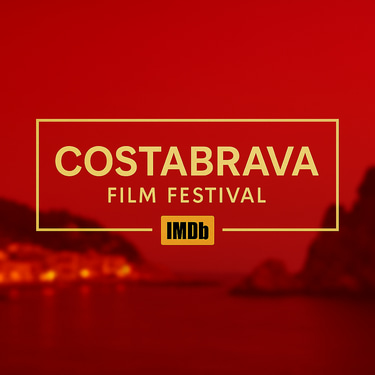INTERVIEW with Raúl E. Peyret
Raúl E. Peyret is a versatile and acclaimed actor, director, and producer, known for his compelling work in both theater and film. On stage, he has delivered memorable performances in productions such as The Pericles Project, directed by Robin Lynn Smith, Anna in the Tropics, under the direction of Rose Cano, and Uncle Vanya, directed by Susan Bradford. His theatrical expertise has seamlessly translated to the screen, where he has not only acted but also contributed behind the camera. His film credits include June and John, directed by Luc Besson, The Scottish Play, Martingale, Gone with the Dead, and his first feature film, "Home(sick) - A Journey Within", which he wrote and directed. "Home(sick) - A Journey Within" was originally a short film; and that script was an official selection of the City of Angels Women's Film Festival in 2023. Originally from Argentina, Raúl now resides in Los Angeles, where he has established himself as a respected figure in the industry. His performances have earned him recognition, including the Filmchilla Best Performance Award in 2021. As a director and producer, he brings his unique creative vision to projects, adding another layer to his artistic range. Beyond his film and theater accomplishments, Raúl's academic background-holding a degree in Systems Engineering and an MBA-provides him with a distinctive analytical approach and depth in his storytelling. This combination of artistic passion, technical expertise, and global experience allows him to bring authenticity and complexity to every role he plays.



How long have you been doing movies? How did you decide to start making movies?
I’ve been involved in film for several years, first as an actor and later as a producer. Acting gave me the chance to step into different lives, but it also made me realize I wanted to tell stories from my own perspective. After hearing a podcast about the real story of a trans kid in Alabama, I felt the need to explore questions of identity and belonging more deeply. That impulse pushed me to start writing and directing, and Home(sick) became the first feature where I brought those themes to the screen.
Why did you do this project?
I made Home(sick) because I wanted to ask what “home” really means. For me, that question has always been personal. I’ve lived between countries and cultures, and I know the feeling of being both connected and disconnected at the same time. Early in my career a theatre teacher reminded me that art should not make us comfortable. It should challenge us, confront what we take for granted, and give space to voices that are not always heard. With this film I tried to do that: to explore identity, belonging, and the quiet truths we often avoid, while letting the audience step into questions they might not ask themselves otherwise.
(If you can say). How much budget did you have to do this project?
It was a modest independent budget, the kind that really pushed us to be resourceful. What mattered most wasn’t the size of the budget but the commitment of everyone involved to bring the story to life.
Was it self-funded or did you get budget/producers/investors?
The film was almost entirely self-funded. About ninety-five percent of the budget came directly from me and my production company. We also received support from ArtsWA, a nonprofit arts organization in Washington State, which helped us bring the project to completion.
How long did it take from the initial idea to being able to release?
The first idea for the film came together in February 2023. From there it was two full years of writing, shooting, and post-production, and we completed the film early in 2025.
Are you happy with the result?
I’ve watched the film countless times, and as a filmmaker there are always things I’d like to change, so it’s a hard question for me to answer. But when I see the audience’s reaction and hear their comments on the story, the script, the performances, and the overall quality, I feel reassured. So yes, I’m very happy with the result.
What phase is this project in right now? Are you in the initial phase of sending it to festivals, middle phase or finishing the circuit?
We’re currently in the middle of the festival circuit. The film premiered worldwide in September at the Toronto Nollywood Film Festival, followed by its U.S. premiere in October at the Seattle Latino Film Festival. Now, as we continue with festival screenings, the film is also available for distribution through our sales agent, Sotole Impex.
How has your experience been with the festivals so far? Where do you think they should improve?
I really enjoy festivals that screen films in smaller venues and allow time for Q&As. In those settings, the conversations with the audience feel more genuine and personal. The biggest challenge I’ve noticed is the sheer number of films programmed. Even at major events like Cannes, I’ve seen screenings with only a few people in the seats. At AFM in 2024, for example, there were just three or four people in the theater. That experience reminded me how important audience engagement is, and how much it matters when festivals succeed in filling the room.
In my opinion, European audiences tend to be more open to diverse cinema, approaching each film on its own merits. In the U.S., viewers often look for familiar structures and formats. If festivals could focus more on driving stronger audience turnout and creating opportunities for filmmakers to connect with distributors, investors, and collaborators, the impact of these events would be even greater.
Could you tell us which platforms you use to submit your entries to festivals?
I usually submit through FilmFreeway because it keeps everything organized and easy to track. Once in a while I’ll use a festival’s own submission system, but FilmFreeway works best for me since I can manage all my entries and deadlines from one place.
Normally, filmmakers use many references, favorite directors, favorite movies, etc. Were you inspired by any director or film? If so, tell us your references.
I’ve always admired Christopher Nolan for the way he breaks away from linear storytelling. His films remind me that structure itself can be used as a tool to create emotion and meaning. I also draw inspiration from Luc Besson. I had the chance to work with him on June and John, and I really value how he grounds every choice—dialogue, scenes, camera angles—in the story itself.
Your favorite movie?
Certain films have stayed with me: Interstellar for its bold structure, Le Grand Bleu for the rawness of its story, and Léon: The Professional for its cinematography and character work. A Beautiful Mind is especially important to me because of the way it explores identity, perception, and the inner struggles that shape a person’s life. From George Lucas I’ve learned how effective simple, economical framing can be. I also admire Peter Weir and Ron Howard for their ability to balance human emotion with strong visual worlds. And I can’t forget Dead Poets Society—it was one of the most impactful films I saw in a theater, showing me how cinema can move you and stay with you for life.
Favorite series?
I really enjoy series that combine strong character work with tension and moral complexity. Ozark, Narcos, and Breaking Bad all explore how far people will go when pushed by circumstance, and I admire how each one builds atmosphere and suspense. Succession is another favorite — the writing is sharp, the characters are layered, and it balances drama with a dark sense of humor.
Do you see yourself making movies in 5 years? Where do you see yourself?
Yes, without a doubt. In five years I see myself continuing to direct and produce films on a larger international scale. My goal is to tell stories that are rooted in personal truth yet resonate with audiences everywhere. I also want to grow Accerts Productions into a creative hub for meaningful and diverse projects — a place where we can bring to life stories that other production houses might consider too risky or not commercially viable.
Do you have any other project in mind?
I do. Right now I’m developing Wake, a dark family drama with international partners, and Girl-Up Amigo!, an action-adventure-comedy to be shot in Colombia. I’m also preparing a documentary with the Waorani community in Ecuador, which is especially important to me because it gives space for an indigenous community to tell their own story.
What do you ask for the future? (cinematographically speaking)
For the future, I want Accerts Productions to be known as a company that takes creative risks and delivers stories with global impact. My goal is to expand into international co-productions and build bridges between different filmmaking cultures. I want our films to challenge perspectives, spark conversations, and give audiences experiences they wouldn’t encounter otherwise. The vision is to build a slate of projects that move people deeply while also opening doors for new voices and collaborators in the industry.
Your best experience in a movie theater?
Without question, it was seeing Jurassic Park. I went back to the theater to watch it several times because I simply couldn’t believe what I was seeing on screen. The sense of wonder and scale completely captured me, and it was the moment I realized how powerful cinema could be. Steven Spielberg became a huge inspiration for me after that.
